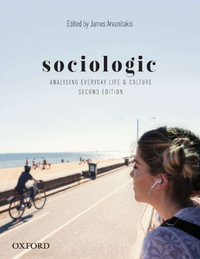Social theory is the theoretical core of the social sciences, clearly distinguishable from political theory and cultural analysis. This book offers a unique overview of the development of social theory from the end of the Second World War in 1945 to the present day. Spanning the literature in English, French and German, it provides an excellent background to the most important social theorists and theories in contemporary sociological thought, with crisp summaries of the main books, arguments and controversies. It also deals with newly emerging schools from rational choice to symbolic interactionism, with new ambitious approaches (Habermas, Luhmann, Giddens, Bourdieu), structuralism and antistructuralism, critical revisions of modernization theory, feminism and neopragmatism. Written by two of the world's leading sociologists and based on their extensive academic teaching, this unrivalled work is ideal both for students in the social sciences and humanities and for anyone interested in contemporary theoretical debates.
Industry Reviews
'Social Theory does a remarkable job of making a complex and sometimes difficult subject matter into a clear and continuously interesting book. Without claiming a false neutrality Joas and Knoebl combine exposition and criticism in a way that is consistently fair even to positions that are farthest from their own. This should be an indispensable book for at least a generation.' Robert N. Bellah, University of California, Berkeley, and co-author of Habits of the Heart
'Possibly the most comprehensive and critical analysis of the development of Social Theory in the second half of the twentieth century - bringing together European and American developments showing their common roots in the classical problematique and the continual development thereof.' S. N. Eisenstadt, Hebrew University of Jerusalem and Van Leer Jerusalem Institute
'... this fascinating book will provide a wealth of conceptual resources for a long time.' Sociologica
'Hans Joas and Wolfgang Knoebl's Social Theory: Twenty Introductory Lectures is a remarkable book. There is nothing that I know that comes anywhere near to it in the contemporary landscape of social theory. [It] is, in addition to other things, an intellectually heavyweight textbook for graduate students and professors, providing a summation of, and critical commentary on, virtually all the major and minor currents in social theory since the middle of the twentieth century.' Rob Stones, Journal of Classical Sociology

























